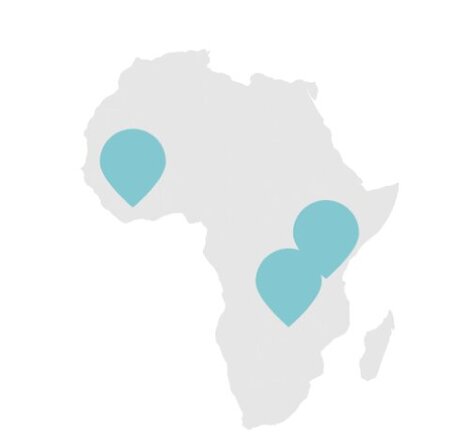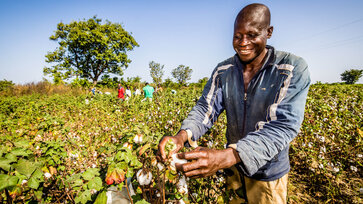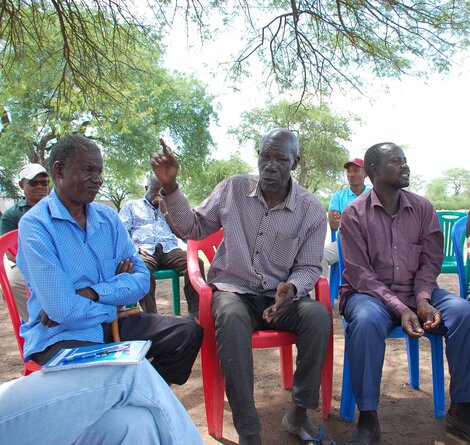Cotton4Impact
Promoting bi-directional communication between producers and ginners to strengthen sustainable cultivation methods and to make cotton traceable via a digital platform.
Partners
- Paul Reinhart AG:
Founded in 1788, the Swiss family business is the oldest and one of the world's leading cotton merchants. It has extensive experience in West Africa and particular expertise in organic cotton and of buying cotton in countries with smallholder structures. - Alliance Ginneries Ltd.:
Founded in 1997, the cotton ginning company operates in Tanzania and Zambia and sources all its raw materials directly from over 50,000 smallholder farmers in the region. - Ivoire Coton:
Founded in 1998, the company is one of the main actors in the cotton market in Côte d'Ivoire. It has a network of 45,000 producers grouped into 1,200 professional agricultural organisations across over 870 villages. It aims to promote cotton cultivation through sustainable management of soils.
Project description
The consortium sees the promotion of more sustainable agricultural practices as the most important measure to improve the competitiveness and the basic income of sub-Saharan smallholder farmers.
The concrete aim of the project is to establish bidirectional communication between smallholder cotton farmers and the ginnery through a digital exchange and learning platform. This will facilitate for instance the coordination on inputs and help increase production yields in the long term.
In addition, a farm app will improve the traceability of the agricultural supply chain (from production to cooperative, ginnery and the trader). This will help actors in the downstream supply chain analyse their impact on the upstream supply chain and the people involved in it as well as facilitate reporting on their due diligence.
In the realm of the development of the tool, farmers will be equally trained in sustainable practices and profit from digital literacy in the field. Directly, up to 100,000 farmers are expected to benefit from the project.


